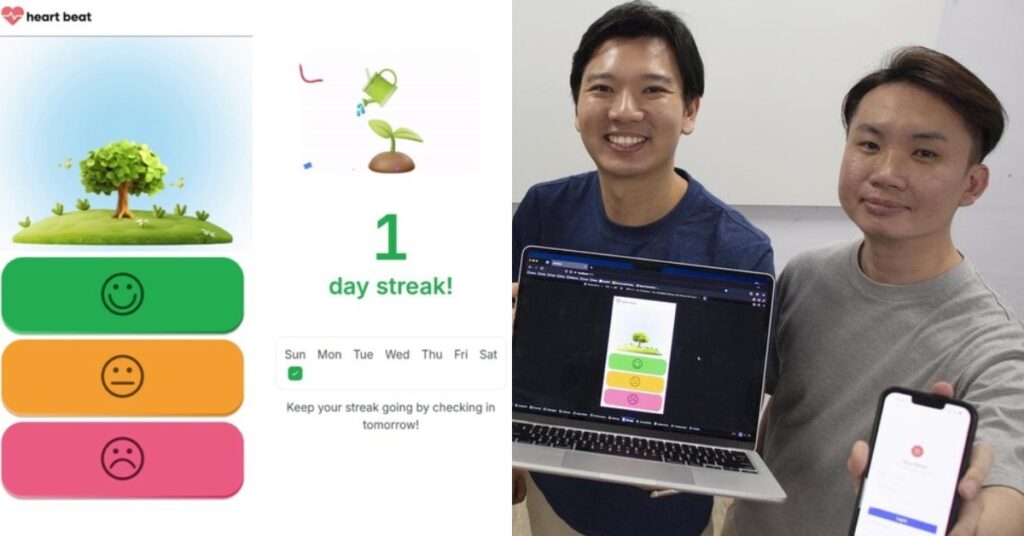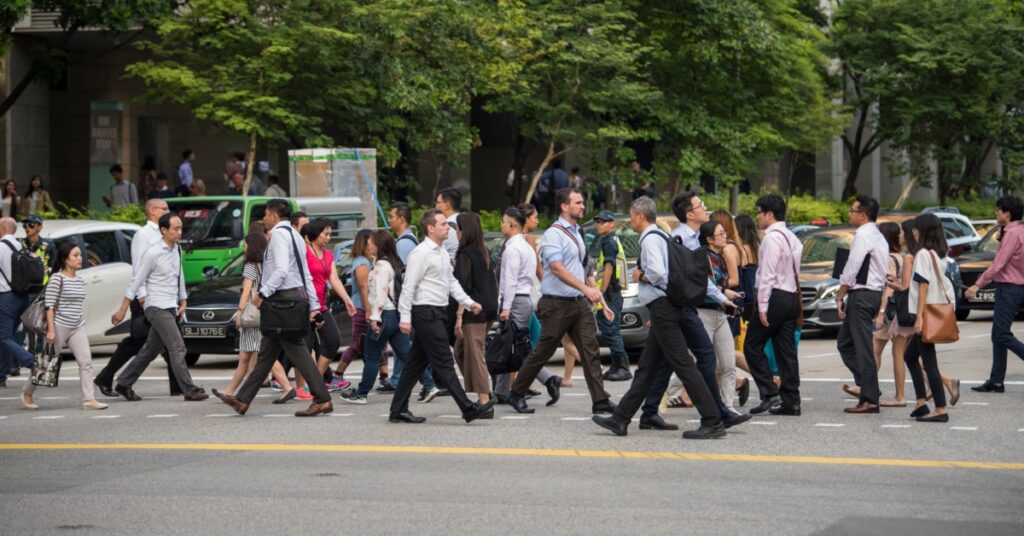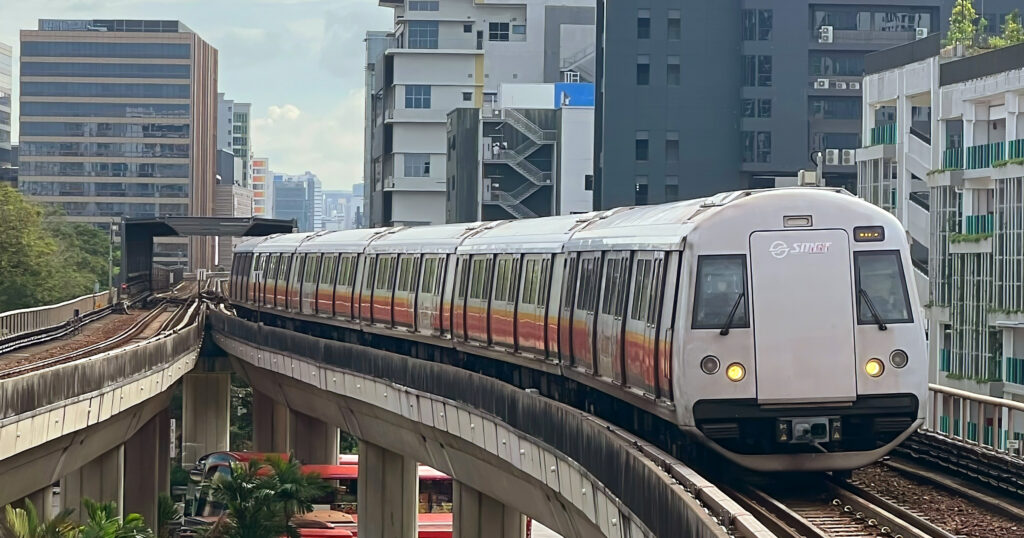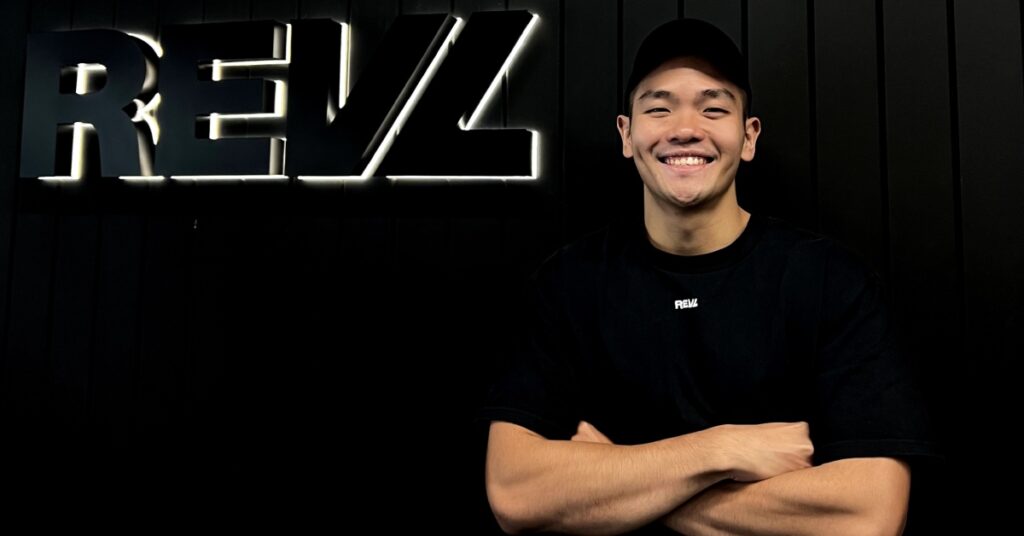This article originally appeared on Vulcan Post.
Parkour has been steadily gaining prominence in recent years, not just in Singapore, but worldwide as well. In fact, there are now parkour festivals held globally every year, where fans and practitioners come together to celebrate the sport.
In this interview, I speak with Tan Chi Ying, founder of A2 Movements, a parkour school in Singapore that provides classes tailored to different demographics like children, ladies, and pretty much everyone else.
What is Parkour?

Parkour is a holistic method of training the body, soul and spirit. It is a discipline that allows you to traverse random terrain with bodily motions such as crawling, running, jumping, climbing, etc.
The discipline engages the practitioner to overcome not just fear and physical obstacles, but also mental obstacles or challenges we face in life. At A2 Movements, we’re all about the amplification of the human experience. Beyond imparting skills, we hope to inspire values as well.
How did you begin practising parkour?
I’ve always been an active child. Over the course of my youth, I read about parkour moves, watched many action movies and imitated the moves on my own. Spiderman was my idol and I would study his movements closely in the cartoon. It never occurred to me that others would find it hard to do the moves that I was already doing. In fact, I was thinking: Didn’t we do these in the playground when we were kids too?
Truth be told, even I didn’t have faith in my own abilities. In fact, a close pal of mine once commented that it’s what I am good at: running away from problems. I belittled my abilities to a great degree. Eventually, I was inspired to use it to overcome obstacles, and I chose to take a leap of faith.

Sure, I had a multitude of naysayers and people laughed at me. But I made a conscious effort to ignore their comments, focused on the positive and chose to be relentless in my pursuit by giving my very best.
During my national service, my skills in parkour meant that I excelled at the Standard Obstacles Course, and was hand picked to be a physical training instructor. I spend my time coaching, crafting lesson plans and testing people.
After that, I studied in business school and applied what I learnt when I started A2 Movements in 2010.
I have always enjoyed movement and navigated my environment with this ability since young. As such, it wasn’t that I found parkour by chance; parkour had always been a part of me. After I ascertained what I wanted to do for my career, I thought to utilise and combine all my life experiences to bring parkour to Singapore.
This year, we managed to build and create our indoor parkour facility Free Runner Lodge, a place to grow, gather and further the local parkour scene. My skills in interior and architecture has played a large part in the planning and execution of Free Runner Lodge. Looking back, I am really glad all points in my life helped connect me to where I am today.
The Free Runner Lodge is built by free-runners, for free-runners. Every part of the facility such as bars and various structures can be shifted and adjusted for better gauge to systematically advance our progress. It allows us to simulate gaps and prepare free-runners for jumps in the outdoor environment where failing will be more unforgiving. It was built the space with the intention of providing a safer training space.
The space is also equipped with a foam pit for flip enthusiasts to pick up the skill as they eventually progress to harder surfaces.
There are several core values in parkour:
Be strong to be useful — We seek to not just strengthen ourselves but to be altruistic in our approach.
To be and to last — We train not just for the now, but also to be prepared for when a situation calls upon our skills. Opportunity and chance is attainable only for the prepared, but becomes a crisis for the ill-prepared. Preparedness comes from exposure and training.
We stay together, we finish together — We seek to grow together and give each other support while at it. That is why in A2, we all train together. We might be strong in one aspect, but another will be strong in the other. Individually, we may be strong, but have weaknesses no matter what. Together, we cover each others’ weaknesses and support one another.

Human reclamation — The ability to overcome fear, pain and limitation. To press beyond them, to overcome and eventually subdue it. To be mindful that we can’t afford to plateau, for life is constantly ongoing and changing, and we need to adapt along the way but keep the end in mind.
What is a common misconception about parkour?
One misconception of parkour is that people think it’s all bout big gap jumps, flips, roof tops and the extreme. However, these seemingly amazing feats which bring much attention to the discipline is simply showing the pinnacle of the athletes.
What do you think more people need to know about parkour?
Parkour is really for everyone. It’s an activity for everyone to improve their bodily movements and master their environment, rather than be dictated by it. Beyond the physical benefits, there are also intrinsic benefits that the mind can attain from the discipline.
Much like every other skill, if it is untapped, it will remain dormant. Only by exploring their abilities can we experience the limits of our capability. The fact that we have limbs means we are all to move, and in movement, find freedom and joy.
Ultimately, parkour is a journey of self discovery as much as it is about learning practical skills. What one excels at is usually based on what they already have — which can become an asset but also a hindrance. For example, a rock climber might deal with wall climbing easily, but will often struggle with movements involving power. Those who are inactive will have to start from the ground up to prevent long-term injury.

One’s movements can shed light and reveal what they value, what their background might be, what they might be going through in life, and their inner weaknesses and strengths. So just come as you are and take the first step into your journey of self exploration.
What’s your advice to someone who wants to begin parkour?
Start moving. Don’t despise the days of small beginnings and basic movements, for they form the foundational aspects to longevity. Avoid the pitfall of seeking quick progression or trying catch up; rather, progress at a pace your body is willing and comfortable with.
There isn’t a minimum fitness requirement, though the fitter or more active you are, the faster you will be able to pick up certain techniques or category of movements.
Newcomers can expect to join in the class and train alongside like-minded individuals. No one is more advanced than another, for we each have our own obstacles to deal with. You can expect to be taught and exposed to one or more category of movements and technique, and will be built from foundation up.
When people take the first step to attend our classes, they have already taken a step out of their comfort zone with the willingness to try! All that is left is to learn to be persistent, and to be more sensitive to the body’s feedback over the course of training. Training might take a while because everyone progresses at a difference pace. Be mindful to not compete or compare. Have determination to stick to it and all the efforts will be worth the while when you look back and see how far you have come.

When I asked students at A2 Movements how they would describe Chi Ying, “A kind face with a big heart” and “Patient and focuses on safety” is what they had to say. Mr Peeters, a parent whose 5-year-old son is enrolled in Kids Parkour, shared that his child added, “Chi Ying is more superhero than Batman because he can climb and jump buildings without any tools!”
Free Runner Lodge is located at Oxley BizHub 1 near Tai Seng MRT, and they also offer outdoor training. Read more about their schedule here or see their students in action on their Instagram account.










